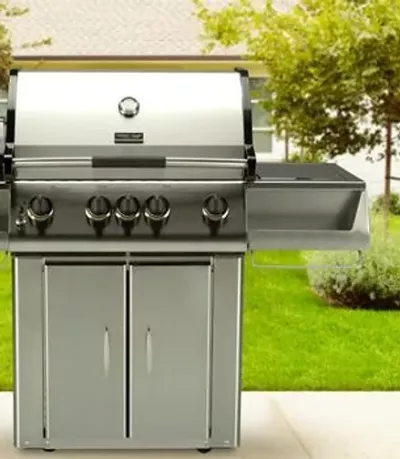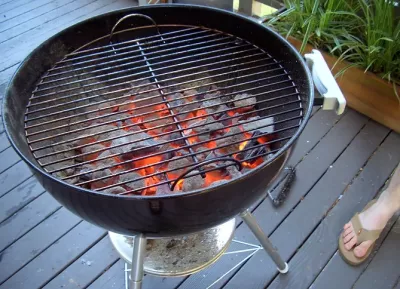Patio Fireplaces & Fire Pits
- Open burning is prohibited within city limits.
- Follow the "Fire Danger Index" before burning (www.starkcountynd.gov/fire).
- When using a Patio Fireplace/Fire Pit a screen must be in place.
- Burn only clean, dry wood.
- Do not burn grass, leaves, or garbage.
- Make sure that charcoal ashes are cold before properly discarding them.
- Do not leave children alone near a Patio Fireplace/Fire Pit.
- Never bring a Patio Fireplace/Fire Pit indoors, or into an unventilated space. This is both a fire and carbon monoxide poisoning hazard.
- Always keep a fire extinguisher, garden hose, or large buckets of water nearby to smother the fire if necessary.
- Place the Patio Fireplace/Fire Pit on a level, non-combustible surface like stone or gravel.
- Clear the area 3' (feet) around your selected location of debris including leaves, pinecones, or twigs.
- Keep the Patio Fireplace/Fire Pit 15' (feet) away from any structure including buildings, fences, and trees/shrubs.

- Designate the grilling area a “No Play Zone” keeping kids and pets well away until the grill equipment is completely cool.
- Before using, position your grill at least 3 feet away from other objects, including the house, shrubs and bushes.
- Before using a gas grill, check the connection between the propane tank and the fuel line to be sure it is working properly and not leaking.
- Never bring a barbecue grill indoors, or into an unventilated space. This is both a fire and carbon monoxide poisoning hazard.

- Check the Fire Danger Index
- If high, very high, extreme or a red flag warning issued the charcoal grill cannot be used.
- Charcoal grill must be 15’ away from any structure or combustible materials.
- Use on a non-combustible surface.
- Never leave cooking unattended.
- Discard ashes in a closed metal container. (metal lid)
- Container must be kept away from combustible materials.
- Do not discard ashes into city garbage dumpsters. Ashes must be disposed of at the city baler building. Call 456-7776 for more information.
The simple yet powerful act of changing the batteries in smoke alarms when you change your clock back in the fall can double a family’s chances of getting out of a home fire alive. Overall, roughly 80 percent of home fire deaths in this country occur in homes without working smoke alarms. On average, nearly two children die each day in home fires.
Your ability to get out of your home during a fire depends on advance warning from smoke alarms and advance planning. Fire can spread rapidly through your home, leaving you as little as one or two minutes to escape safely once the smoke alarm sounds.
- Purchase electric space heaters that bear the mark of an independent testing laboratory such as UL, ETL, CSA, etc.
- Keep all space heaters at least 3 feet away from anything that can burn – people, pets, newspapers, furniture, window coverings and even walls.
- Plug your electric-powered space heater directly into an outlet with sufficient capacity and never into an extension cord.
- Turn off space heaters before leaving a room or going to sleep.
- Put candles securely in non-tip candle holders that will collect the dripping wax.
- Keep candles well away from Christmas trees, decorations, curtains and other combustibles and never put candles in windows or near exits.
- Don’t leave candles burning unattended or within the reach of small children, and blow them out before you leave the room or go to sleep.
- Make sure smoke alarms are operational and practice your fire escape plan.
- Have a professional chimney sweep inspect chimneys annually for cracks, blockages and leaks and have them cleaned and repaired as needed.
- Keep fireplace fires small, and use a fireplace screen to prevent sparks from flying into the room.
- Don't leave children alone in a room with a fireplace fire.
- Burn only dry seasoned wood to avoid the build-up of creosote, and oily deposit that easily catches fire and accounts for most chimney fires.
